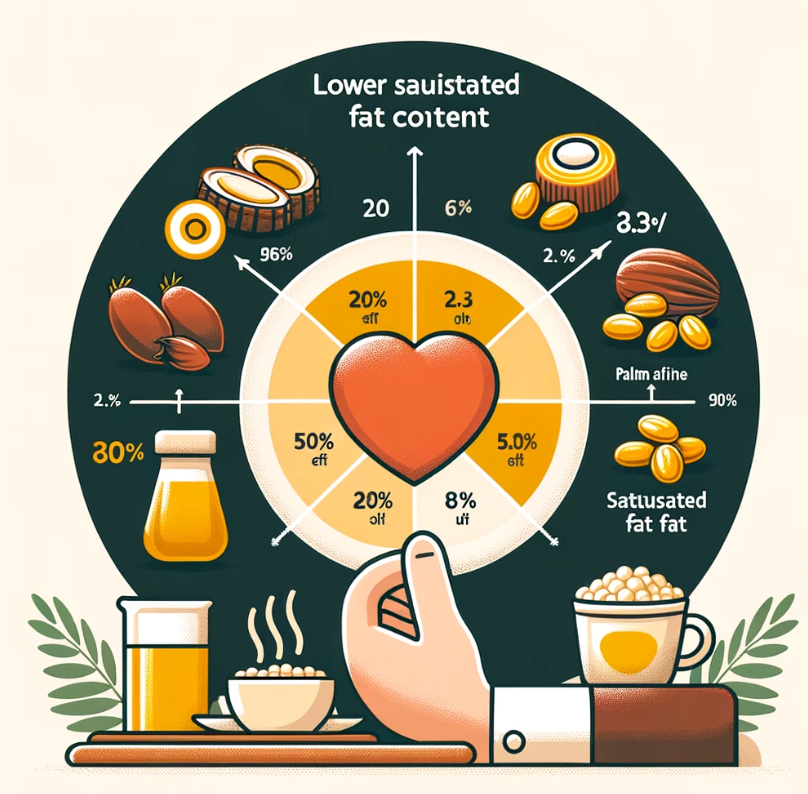In the ongoing debate about dietary health, palm oil often emerges as a topic of interest, prompting the question: “Is palm oil beneficial for health?” A deeper exploration into its nutritional makeup reveals a range of health-enhancing properties. Incorporating palm oil into a balanced diet can be particularly effective in boosting the absorption of essential vitamins, such as vitamin A, critical for eye health.
This oil’s balanced blend of fats and its richness in vitamins set it apart from other vegetable oils, highlighting its unique and valuable contribution to a nutritious diet.
Low in Saturated Fats

Palm oil’s relatively lower saturated fat content positions it as a heart-friendly option in the realm of cooking oils. Its primary saturated fat, palmitic acid, is distinct in its minimal impact on cholesterol levels, contrasting with other saturated fats known for raising LDL cholesterol.
This attribute of palm oil makes it an attractive choice for those mindful of cardiovascular health and seeking to minimize the intake of harmful fats.
Antioxidant Richness
The high antioxidant content in palm oil is among its most notable health benefits. These antioxidants are crucial in combating the damaging effects of free radicals, which can lead to cell damage and various health complications. Rich in carotenoids, such as beta-carotene and lycopene, palm oil stands out for its ability to counteract oxidative stress.
Additionally, its tocotrienol content, a form of vitamin E, has shown exceptional potential in protecting brain health and may slow the progression of neurological disorders. These properties not only enhance brain health but also have a positive impact on heart health, making palm oil a multifaceted addition to a health-conscious diet.
Nutrient-Dense Profile
Palm oil’s nutrient profile is robust, containing essential elements that contribute to overall well-being. Its significant antioxidant capacity is complemented by the presence of vitamin K, which is vital for blood clotting and bone health.
These attributes collectively enhance the nutritional value of palm oil, endorsing it as a beneficial element of a varied diet.
Culinary Stability at High Temperatures
Palm oil’s ability to withstand high temperatures without degradation sets it apart as a preferable cooking oil. Its high smoke point allows for safe cooking methods like frying and sautéing, without the risk of creating unhealthy byproducts.
This aspect underscores palm oil’s role as a safe and health-conscious choice for various cooking applications.
Longevity and Versatility in the Kitchen
The composition of palm oil not only contributes to its extended shelf life but also to its versatility in cooking. Its resistance to rancidity makes it a practical and cost-effective choice, while its semi-solid form at room temperature proves ideal for baking and pastry applications, showcasing its adaptability in the culinary world.
In summary, responsibly sourced and moderately consumed palm oil can be a valuable component of a nutritious diet. Its composition, characterized by a lower saturated fat content, abundant antioxidants, essential nutrients, and cooking stability, elevates it as a preferred alternative to many other vegetable oils.
Individual dietary needs and professional guidance should always inform dietary choices. Through informed decisions and a diverse diet, the health benefits of palm oil can be fully realized, contributing to overall health and longevity.
